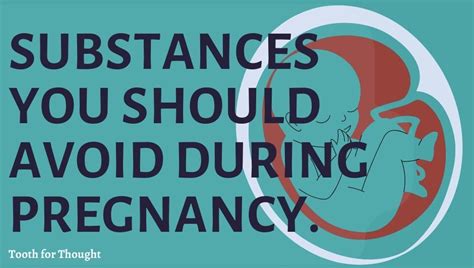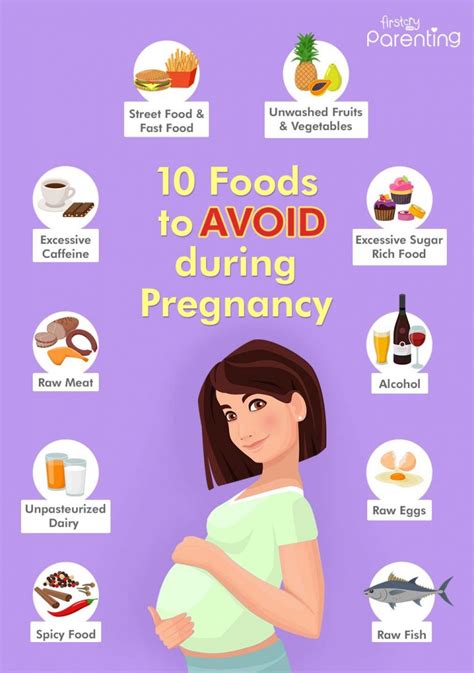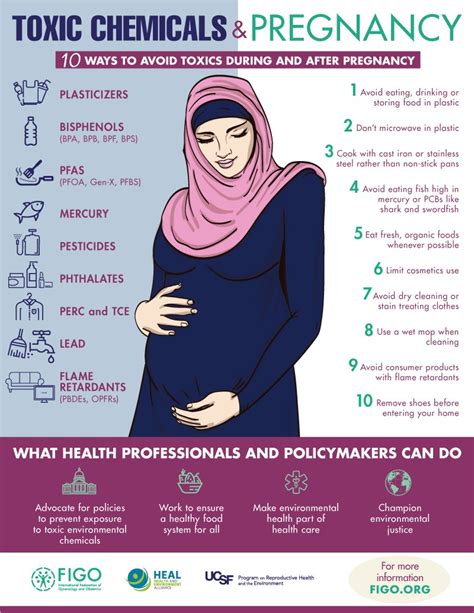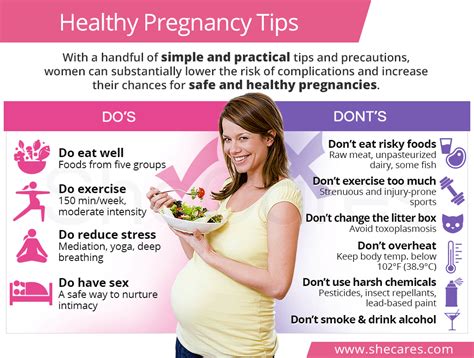Intro
Pregnancy is a critical period in a woman's life, filled with excitement, anticipation, and a plethora of responsibilities. As the body undergoes significant changes to nurture the growing fetus, it's essential to be aware of the activities, foods, and substances that can potentially harm the unborn baby. Expectant mothers often find themselves bombarded with advice from family, friends, and healthcare professionals, which can sometimes be overwhelming. However, understanding what to avoid during pregnancy is just as crucial as knowing what to do, as it directly impacts the health and well-being of both the mother and the baby.
As soon as a woman discovers she is pregnant, her entire lifestyle may need to undergo a significant transformation. From dietary changes to avoiding certain physical activities, the list of pregnancy don'ts can seem endless. But why are these precautions so important? The primary reason is to minimize risks associated with pregnancy complications, birth defects, and ensuring the baby develops healthily. For instance, avoiding alcohol and tobacco is crucial because these substances can pass through the placenta, potentially causing harm to the fetus. Similarly, certain foods and medications can have adverse effects, making it vital for pregnant women to be cautious about their consumption.
The journey to motherhood is filled with countless decisions, and making informed choices is key to a healthy pregnancy. By understanding what activities, foods, and substances to avoid, expectant mothers can significantly reduce risks and create a nurturing environment for their baby to grow. Whether it's adjusting dietary habits, modifying physical activities, or being mindful of environmental exposures, every precaution taken contributes to a safer and healthier pregnancy. As we delve into the specifics of what to avoid during pregnancy, it's essential to remember that each woman's experience is unique, and what might be harmful for one pregnant woman might not be as risky for another. Therefore, consulting healthcare professionals for personalized advice is always the best approach.
Substances to Avoid During Pregnancy

Certain substances are known to pose significant risks during pregnancy, including alcohol, tobacco, and illicit drugs. Alcohol consumption, for example, can lead to fetal alcohol spectrum disorders (FASDs), which encompass a range of conditions that can affect a child's physical, mental, and cognitive development. Similarly, smoking tobacco increases the risk of miscarriage, stillbirth, and sudden infant death syndrome (SIDS), among other complications. Illicit drugs, such as cocaine and heroin, can cause premature birth, low birth weight, and birth defects. Understanding the risks associated with these substances is crucial for making informed decisions about lifestyle choices during pregnancy.
Alcohol and Pregnancy
Alcohol is a substance that expectant mothers should entirely avoid. There is no known safe amount of alcohol that can be consumed during pregnancy without risking harm to the fetus. Alcohol can disrupt fetal development, leading to physical, behavioral, and cognitive problems. The effects of alcohol on the fetus can be severe and long-lasting, making abstinence the best policy for pregnant women.Tobacco and Pregnancy
Tobacco use is another critical area of concern during pregnancy. Smoking and the use of tobacco products can lead to a myriad of complications, including placental abruption, where the placenta separates from the uterus, and ectopic pregnancy, where the embryo attaches outside the uterus. Quitting tobacco use is essential for pregnant women to reduce these risks and ensure a healthier pregnancy.Foods to Avoid During Pregnancy

Diet plays a crucial role in pregnancy, providing the necessary nutrients for the mother's health and the baby's development. However, some foods can pose risks, including those with high mercury content, undercooked or raw meats, and certain types of fish. Understanding which foods are safe and which should be avoided can help expectant mothers make informed dietary choices.
Mercury-Containing Foods
Foods high in mercury, such as shark, swordfish, and king mackerel, should be avoided due to the potential for mercury to accumulate in the body and harm the developing fetus. Mercury exposure can lead to cognitive and developmental problems in children. While some fish and seafood are safe in moderation, it's essential to be aware of the mercury levels in different types of fish to make safe choices.Undercooked or Raw Foods
Undercooked or raw meats, eggs, and fish can contain bacteria like Salmonella and Listeria, which can cause food poisoning. During pregnancy, the immune system is suppressed, making pregnant women more susceptible to foodborne illnesses. These illnesses can lead to serious complications, including miscarriage, stillbirth, and premature birth. Therefore, ensuring that all foods are cooked thoroughly is crucial.Physical Activities to Avoid During Pregnancy

While physical activity is beneficial during pregnancy, helping to maintain a healthy weight, improve mood, and prepare the body for labor, certain activities should be avoided due to the risk of injury or complications. High-impact sports, contact sports, and activities that involve lying flat on the back after the first trimester are generally advised against.
High-Impact and Contact Sports
Activities like boxing, soccer, and basketball can increase the risk of falls and injuries, which might harm the fetus. Similarly, high-impact sports can cause placental abruption or other serious complications. It's recommended that pregnant women opt for low-impact exercises, such as swimming, cycling, or walking, which are safer and can provide similar health benefits.Lying Flat on the Back
After the first trimester, pregnant women are advised to avoid lying flat on their backs during exercise or rest. This position can cause the uterus to compress the inferior vena cava, a major vein that carries blood back to the heart, potentially leading to a decrease in blood pressure and reducing blood flow to the baby. This can result in dizziness, lightheadedness, and even fainting in the mother.Environmental Exposures to Avoid

The environment around us contains numerous substances and conditions that can pose risks during pregnancy. From pesticides and heavy metals to extreme temperatures, being aware of these potential hazards is crucial for minimizing exposure and ensuring a healthy pregnancy.
Pesticides and Heavy Metals
Exposure to pesticides and heavy metals, such as lead and mercury, can have detrimental effects on fetal development. These substances can be found in certain household products, contaminated water, and polluted air. Reducing exposure involves using environmentally friendly products, ensuring good ventilation, and avoiding areas with high levels of pollution.Extreme Temperatures
Extreme temperatures, whether hot or cold, can be harmful during pregnancy. High temperatures, such as those experienced in hot tubs or saunas, can lead to an increased risk of miscarriage and birth defects. On the other hand, extreme cold can cause blood vessels to constrict, potentially reducing blood flow to the fetus. It's essential to maintain a comfortable body temperature and avoid sudden changes.Managing Stress During Pregnancy

Stress is a natural part of life, but during pregnancy, it's crucial to manage stress levels effectively. High stress can lead to complications, including high blood pressure and premature birth. Engaging in stress-reducing activities, such as meditation, yoga, and deep breathing exercises, can help expectant mothers cope with stress in a healthy manner.
Benefits of Stress Reduction
Reducing stress not only benefits the mother's health but also contributes to a healthier pregnancy. Lower stress levels can improve mood, enhance sleep quality, and increase energy levels. Furthermore, managing stress can help pregnant women better cope with the physical and emotional changes they are experiencing, leading to a more positive pregnancy experience.Practical Stress Reduction Techniques
Practical techniques for reducing stress include regular exercise, maintaining a healthy diet, and ensuring adequate sleep. Additionally, staying connected with loved ones, engaging in hobbies, and practicing mindfulness can help manage stress levels. It's also beneficial for pregnant women to stay informed about pregnancy and parenthood, as knowledge can reduce anxiety and increase feelings of control and preparedness.Maintaining a Healthy Lifestyle

A healthy lifestyle is the cornerstone of a successful pregnancy. This includes a balanced diet, regular physical activity, adequate sleep, and avoiding harmful substances. By adopting healthy habits, expectant mothers can significantly reduce the risk of complications and ensure the best possible outcomes for their babies.
Nutritional Advice
A well-balanced diet rich in essential nutrients, vitamins, and minerals is crucial for the health of both the mother and the fetus. Key nutrients include folic acid, iron, calcium, and protein. A diet lacking these essential nutrients can lead to deficiencies, which might result in birth defects, premature birth, or other complications.Importance of Prenatal Care
Regular prenatal care is vital for monitoring the health of both the mother and the fetus. Through prenatal visits, healthcare providers can identify potential issues early, provide guidance on healthy pregnancy practices, and offer support throughout the pregnancy journey. This care is tailored to the individual needs of each pregnant woman, making it a critical component of a healthy pregnancy.What are the most critical substances to avoid during pregnancy?
+Alcohol, tobacco, and illicit drugs are among the most harmful substances for pregnant women, as they can cause a range of complications, from birth defects to premature birth.
How can I manage stress effectively during pregnancy?
+Engaging in stress-reducing activities like meditation, yoga, and deep breathing exercises can help. Additionally, maintaining a healthy lifestyle, including regular exercise, a balanced diet, and adequate sleep, is beneficial.
What foods should I avoid during pregnancy to minimize risks?
+Foods high in mercury, undercooked or raw meats, and certain types of fish should be avoided. It's also important to avoid foods that can cause food poisoning, such as unpasteurized dairy products and raw or undercooked eggs.
Why is prenatal care so important during pregnancy?
+Prenatal care allows healthcare providers to monitor the health of both the mother and the fetus, identify potential issues early, and provide personalized advice and support throughout the pregnancy.
How can I ensure a healthy pregnancy through lifestyle choices?
+Maintaining a healthy lifestyle, including a balanced diet, regular physical activity, avoiding harmful substances, and managing stress, can significantly contribute to a healthy pregnancy. Regular prenatal care and following the advice of healthcare professionals are also crucial.
As we conclude our exploration of what to avoid during pregnancy, it's clear that making informed choices is key to a healthy and successful pregnancy. By understanding the risks associated with certain substances, foods, physical activities, and environmental exposures, expectant mothers can take proactive steps to minimize these risks. Adopting a healthy lifestyle, managing stress, and engaging in regular prenatal care are all vital components of ensuring the best possible outcomes for both mother and baby. We invite you to share your thoughts, experiences, and questions in the comments below, and to spread awareness about the importance of informed decision-making during pregnancy. Together, we can support expectant mothers in their journey to a healthy and happy pregnancy.
